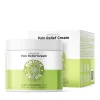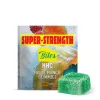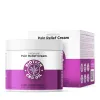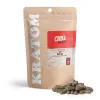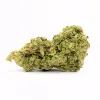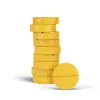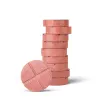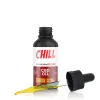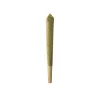You likely already know about cannabinoids like delta 8 or delta 10, which are just derivatives of the well-known delta 9, the main psychoactive compound in cannabis. What you probably don’t know, however, is that the hemp industry has been recently and quietly revolutionized by new cannabinoids that promote one thing and one thing only: intensity.
Among these new cannabinoids, HHC-P, a similar compound to the better-established THC-P, offers its users gargantuan strength. And by this, we don’t just mean it’s twice or three times as strong as regular THC, but actually 33 times stronger! Yes, you read that correctly, HHC-P is estimated to be around 33x stronger than delta 9. But what else is there to know about this new compound set to become the next biggest thing in the hemp industry? Discover its benefits, effects, and legality below!
What is HHC-P?
HHC-P, also known as hexahydrocannabiphorol, is a derivative of HHC. The compound is made by taking HHC and enhancing the structure of its carbon side chain, thus changing the way the compound interacts with CB1 receptors in the brain. This is what determines how high a compound makes us feel. Adding to HHC’s side chain increases the compound’s efficiency to bind to CB1 receptors by up to 30 times its original ability. This enhancement results in HHC-P, a compound with 10 times the potency of HHC.
HHC-P is made from HHC, so perhaps it’s worth exploring that compound at more length. HHC is basically just a hydrogenated form of THC, making it more stable but slightly less potent. During the process of hydrogenation, THC molecules are saturated with hydrogen, which breaks THC’s double bond and replaces it with hydrogen atoms. This process results in a more chemically stable cannabinoid, but THC’s original properties and effects remain virtually unchanged in the new compound. HHC-P is essentially made to combat this lessened potency; it offers HHC with added strength and intensity.
What Is HHC-P?
Psychoactive vs Non-Psychoactive Properties of HHC-P
While other cannabinoids, psychoactive or otherwise, have medical and recreational appeals for users, HHC-P offers one thing that many others don’t: crazy potency. After all, the pure reason this cannabinoid exists is the demand for a more intense psychoactive experience than THC could ever give users. Estimated to be over 10 times more potent than delta 9, HHC-P offers all the benefits from your favorite cannabinoids with an added potency.
As previously stated, HHC-P is a brand-new addition to the hemp industry, so studies on the compound are still underway, meaning that we don’t yet know for certain what exactly the compound can do. We know that its psychoactive effects are extremely powerful—almost unlike anything the world of cannabinoids has ever seen—but what about its non-psychoactive properties?
Similarly to THC and HHC, the compound is known for its anti-inflammatory and analgesic properties, and it is also currently being studied for its potential to help treat anxiety and depression. From what we’ve gathered from user accounts so far, the hemp community believes HHC-P to help in:
- Increasing appetite
- Increasing energy
- Relieving pain
- Relieving anxiety
- Reducing inflammation
Again, these are all user accounts, and there currently exist no scientific studies to back this information up. That said, due to the cannabinoid’s scientific closeness to other, better studied cannabinoids, the future for HHC-P looks bright and promising.
According to the National Center for Complementary and Integrative Health, cannabinoids may be helpful in treating certain forms of epilepsy, nausea and vomiting associated with chemotherapy, and loss of appetite and weight loss associated with HIV/AIDS. Additionally, some evidence suggests some benefits for chronic pain.
Delta 9 (THC) itself has been known to have its own therapeutic benefits related to chronic pain and inflammation. HHC, the predecessor cannabinoid to HHC-P has some fame of its own in the scientific world. The compound was tested on rats by a team of researched in 1977, which led to the discovery that the compound could share some properties with narcotic painkillers, but some significant differences existed. In 2007, a study found that HHC extended sleeping time between 80% and 700% on mice. That same study also revealed that HHC has strikingly similar properties to delta 9, with less powerful effects.
HHC-P Benefits & Side Effects
Because HHC-P is among the newest additions to the hemp-derived cannabinoid family, we don’t yet have enough research to understand the full extent of its effects. That said, HHC-P is essentially just a stronger form of HHC, which is known to be strikingly similar to delta 9. From user accounts, we can gather that HHC-P’s possible effects include:
- Pain relief
- Nausea relief
- Increased appetite
- Mood boosts
- Euphoria
- Relaxation
The same thing goes for the compound’s side effects. Since we don’t really have much research to turn to when describing its side effects, we currently rely on user reports, many of which speak of side effects including:
- Dry mouth
- Headache
- Paranoia
- Anxiety
Because HHC-P is so strong, it’s certainly recommended to start low with this cannabinoid. When taking it, especially for the first time, be sure to take a little less than you think you should and build your way up to the perfect high for you. This may seem like a tedious process at first, but reaching a point of comfortably buzzing beats having a panic attack any day, right?

How Strong Is HHC-P?
As previously mentioned, HHC-P is around 33 times more effective at binding to CB1 receptors than delta 9, which makes it around 10 times more potent than the world’s most famous psychoactive compound. Its intense potency also makes HHC-P stronger than delta 8, delta 10, and HHC, but is it stronger than THC-P?
Is HHC-P Stronger Than THC-P?
THC-P is perhaps the most similar compound to HHC-P. Not only do they share similar names, but they’re also similar in potency. Like HHC-P, THC-P was also found to bind to CB1 receptors around 33x more often than regular THC and is currently thought to be around 10 times as potent. This leaves both compounds at around the same potency levels, but their highs are a little different.
HHC-P’s high is often compared to the psychoactive effects of a hybrid strain, which means that it’s a balanced experience between the body and the mind. In other words, it’s not too energizing nor too sedating, but still gives you the psychoactive potency—and desired effects—that resemble that of indica and sativa. THC-P, on the other hand, has been described as euphoric, with a possibly more powerful body high than HHC-P. This means that, while both extremely potent, THC-P may leave you couch-locked and knocked out, while HHC-P will have you chilling without yawning.
Is HHC-P Stronger than THC?
HHC-P binds to CB1 receptors around 33 times more effectively than regular THC, leaving it at about 10 times as potent as the well-known cannabinoids. While both of them will give you the pain-relieving, relaxing, and euphoric effects they are associated with, only one will do so with gargantuan strength.
How Is HHC-P Made?
HHC-P is considered a semi-synthetic cannabinoid, which may set off some alarm bells in some users—and with good reason. But HHC-P isn't like truly synthetic cannabinoids, such as K2 or Spice. Instead, it’s just the result of changing the molecular structure of an existing cannabinoid in order to create a new one. In other words, HHC-P is derived from hemp in a lab environment, not made from scratch like an actual synthetic compound.
So, how exactly is HHC-P made?
The first step to making HHC-P is finding the best hemp available. As a hemp derivative, HHC-P begins with the plant itself. Finding the best hemp plant material ensures a pure and high-quality product from farm to your door. It’s important to source hemp from local farms because long transit times and exposure to elements like oxygen, light, and heat can corrupt the raw hemp compounds, including terpenes and cannabinoids. It’s also crucial to use organic hemp grown without pesticides or herbicides, as hemp itself is an exceptionally absorbent plant. This means that if a grower uses dangerous toxins, they could end up in your product.
After accessing the highest-quality hemp available, it’s time to extract the cannabinoids from the raw plant material. This process is usually achieved through a CO2 extraction process, which involves pushing pressurized CO2 through the plant material. This results in an extract that can be purified using steam distillation, or exposure to different temperatures and pressures that degrade all unwanted compound, leaving behind an isolated CBD extract.
From there, it’s all about conversion. CBD is turned into HHC through a process called isomerization. While HHC is found naturally in the cannabis plant, it only occurs in trace amounts, making it easier and much more cost-effective to simply turn CBD into HHC. Isomerization is actually the main way in which all psychoactive cannabinoids are produced. Because all cannabinoids come from CBG, nicknamed the “mother cannabinoid,” they all share the same molecular make up. Isomerization simply consists in rearranging the molecules in one cannabinoid to turn it into another one. Through this isomerization process, CBD is turned into THC, but that’s not where the story ends for HHC-P.
After CBD is isomerized into THC, it’s time for hydrogenation. This process involves saturating THC with hydrogen molecules, which changes the compound’s chemical structure by breaking its double bonds and replacing them with hydrogen atoms. This results in a more stabilized compound, HHC, but it’s still not HHC-P.
After the process of hydrogenation, which achieves HHC, scientists add carbon atoms to the compound’s carbon tail, leaving with a total of seven carbons. This gives HHC-P the “phorol” in its name and results in a higher affinity for binding to CB1 receptors. In this process, chemists modify HHC’s chemical structure to mimic THC-P’s carbon tail. And voilà, there you have it! HHC-P in the flesh. From here, it’s just a matter of making HHC-P products out of the resulting distillates.
It's certainly a long and complicated process, but the end result’s intense potency definitely makes it worth it. So, to summarize, safe and high-quality HHC-P is made by:
- Finding clean and high-quality hemp
- Extracting CBD from the hemp
- Converting CBD to THC via isomerization
- Converting THC to HHC via hydrogenation
- Adding more carbon atoms to HHC’s carbon tail
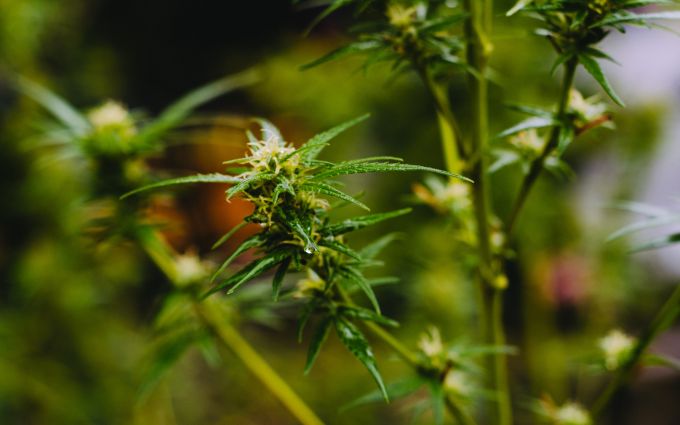
Is HHC-P Legal?
HHC is federally legal under the 2018 Farm Bill, which effectively legalized hemp and all of its derivatives around the country. Also known as the Agriculture Improvement Act, the Farm Bill created a distinction between hemp and marijuana, which currently remains illegal under US law.
Under the Farm Bill, hemp refers to cannabis plants containing 0.3% THC or less on a dry weight basis, while cannabis containing more than 0.3% THC is considered marijuana. This means that any cannabinoid derived from hemp is federally legal as long as it contains 0.3% THC or less, including delta 8, delta 9, delta 10, HHC, and HHC-P! Any of these compounds sourced from marijuana, however, are currently illegal under federal law.
That said, some states have enacted restrictions on hemp-derived cannabinoids, making state legality a little trickier. Although it is new, HHC-P falls under blanket ban enacted by several states that are against all psychoactive cannabinoids, whether they come from hemp or marijuana. These include:
- Alaska
- Arizona
- Arkansas
- Colorado
- Delaware
- Hawaii
- Idaho
- Iowa
- Mississippi
- Montana
- Nevada
- New York
- North Dakota
- Oregon
- Rhode Island
- Utah
- Vermont
- Washington
What is the Difference Between HHC-P and HHC?
As we’ve previously stated, HHC-P is made from HHC, making the compound its predecessor. In essence, HHC-P is just a more potent version of HHC, but their effects and properties remain the same. Chemically speaking, the only difference between HHC and HHC-P is HHC-P’s additional carbon atoms added to HHC’s carbon chain—this is what creates HHC-P.
So, essentially HHC and HHC-P have the same benefits, properties, and effects, but HHC-P is around ten times as potent as HHC. In other words, the only palpable difference between the two compounds is potency.
Is HHC-P Safe?
While research on HHC-P is currently extremely limited, there is no indication that HHC-P is any less safe than other similar compounds like HHC, THC, and THC-P. Ultimately, however, we still have much to learn about HHC-P’s effects, positive and negative alike. That said, due to its chemical similarities to other cannabinoids and user reports, we can safely assume HHC-P is equally as safe.
The main and most important safety precaution to take when it comes to cannabinoids is the source. Cannabinoid production is not monitored by the FDA, so finding a trustworthy and reliable retailer is essential to ensuring a safe and positive psychoactive experience. When shopping for any cannabinoid—not just HHC-P—be sure to always look out for lab tests and ingredient lists.
Additionally, it’s worth mentioning HHC-P’s potency again. Because the compound is so potent, it is essential to dose it correctly in order to avoid any discomforts or undesirable effects. Dosing isn't an exact science and varies from person to person, depending on tolerance, metabolism, age, weight, and other factors. When using HHC-P, be sure to start low and slow and build your way up to the perfect high in order to avoid reaching the threshold between a good trip and a bad one. Remember, there’s no coming back from “too high,” all there will be left to do is call it a night and go to bed.
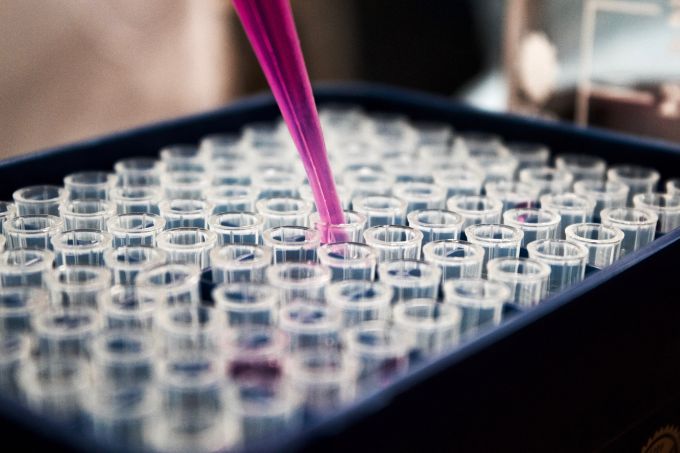
Will HHC-P Make You Fail a Drug Test?
While we don’t yet have enough information on HHC-P to know if it will trigger a positive drug test result, we do know that cannabinoids like THC convert into THC-COOH—the enzyme that drug tests look for. Based on the similarities between HHC-P and other cannabinoids, there is a high chance it metabolizes in an identical manner, meaning using HHC-P is extremely likely to trigger a positive test result.
If you were caught by surprise and hemp-derived compounds are legal in your state, there are more accurate (but more expensive) drug tests available that can accurately determine whether you ingested THC or not, but this will be left at the discretion of your employer or tester. If you know you have a drug test coming up, it’s best to steer clear from HHC-P and any other tetrahydrocannabinols for a few weeks. Better safe than sorry!
Different Types of HHC-P Products Available
Although HHC-P is a brand-new hemp-derived compound, the cannabinoid industry has lost no time in introducing HHC-P products to the market, including edibles, tinctures, and vapes.
These products all have their own advantages and disadvantages, and which one you choose to use depends on factors like the way you want to ingest HHC-P, how long you want the effects to last, and how long you want its benefits to kick in. Disposable vapes and carts, for example, are the fastest way to get the psychoactive effects of HHC-P. Their effects kick in within minutes and can last up to a few hours. The second quickest way to feel the effects of the compound is by using HHC-P tinctures sublingually. When dropping the oil under your tongue, it enters your bloodstream when it is absorbed by the veins in that area, usually taking up to 15 minutes to kick in and lasting for a similar amount of time than vapes.
Tinctures, however, can also be mixed in with food and drinks, which is especially beneficial for those who don’t enjoy the taste of it. This, however, takes longer to kick in, which brings us to our last set of products. Edibles, including products like gummies or tinctures that have been mixed into food, may take over two hours to kick in, but when they do, their effects last for a longer time and feel much more intense. When taking HHC-P edibles, you’re likely to feel the compound’s heightened effects for upwards of eight hours!
At this time, Diamond CBD does not sell any HHC-P products, but we’re certainly working hard to offer you the safest and highest-quality HHC-P available. Because the compound remains new and vastly understudied, we’re currently still working out the details to bring you the compounds you crave without jeopardizing your wellbeing. We’d rather be a little late to the party than sell you anything short of safe, pure, and high-quality products! In the meantime, sign up to our newsletter and stay in the loop about the newest additions to the Diamond family.


